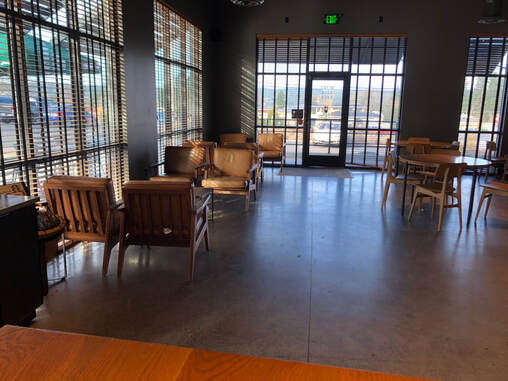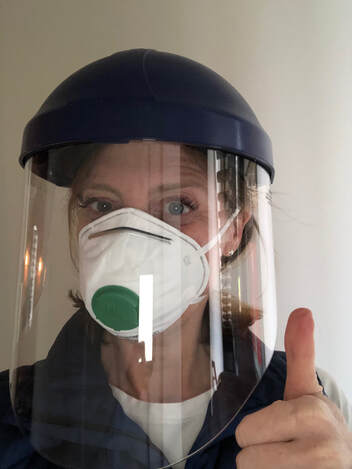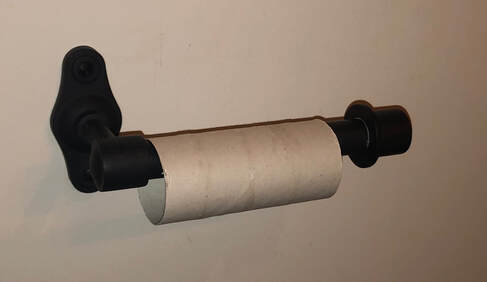|
What a crazy past few weeks this has been for my state, our region, the country and the whole world! As most of you are probably aware, the first state in the U.S. to have someone die from the Covid-19 Coronavirus was Washington, and the virus is now running roughshod across the Western part of our state as well as in cities and towns throughout the country. What began in January as an exotic illness in far-off China has become the topic of constant concern for Americans in the past few weeks. Remember when you didn’t give much thought to scratching your nose or rubbing your eyes? When you thought hand sanitizer was just for use in doctor’s offices and on cruise ships (those poor sons of bitches)? Remember when the lines for security at the airport were long? Or when Starbucks was busy in the morning?? As a citizen of an island town in the Seattle area, which has become the west coast epicenter of the U.S. Coronavirus outbreak, and as a person who has indulged a special interest in disaster preparedness for some many years, now, I am EMBARRASSED to admit that my Go-Bag and household disaster preparedness supplies contained MINIMAL hand sanitizer. Because I’m a doctor I have MANY nitryl gloves and a decent supply of masks, but hand sanitizer was woefully under-stockpiled. Thankfully we have a lot of old-fashioned SOAP at my house, and hand sanitizer can be made at home using a simple recipe, so we’re all good, now. But, still. Lesson learned! I won’t talk too much about masks, here, but I would mention that I am a practicing family physician and have recently had a VERY difficult time obtaining adequate PPE (personal protective equipment - especially masks) for myself, my fellow medical providers, and our staff. We did NOT expect the Coronavirus to pop up on our doorstep first out of the 50 states, and it has been scary worrying about protecting ourselves and our patients as we continue to provide appropriate healthcare to our community every day. All the other medical clinics (and hospitals) I know in the area are in the same situation. Most of our medical supplies are manufactured outside the U.S. and of course now the WHOLE WORLD needs the same supplies. It’s nuts! But aside from these concerns about inadequate supplies there are two pretty amazing things I’ve learned the past few weeks with regard to disasters and their effects on us as individuals and as a community: First, and this is kind of strange when you first think about it, but living during a time of crisis is, well, exhilarating! No - I’m not all jazzed up because I was right, after all, and it’s good to store supplies for emergencies. I mean, yes, it’s awesome to watch everyone in our town suddenly race to Walmart to clean out their supplies of water, canned food and toilet paper in case we are all quarantined at home, next week. What I’m talking about, though, is the sense of focus and solidarity that overtook me last week when I got up one morning, prepared to head to work and realized I was LOOKING FORWARD to the challenge of caring for my patients who may or may not walk into my office that day with a potentially deadly virus. My amazing staff and my fellow providers have rallied to make our clinic as sanitary possible. We have created new protocols for how we triage and room potentially ill patients, we have been networking with other health care providers in the area about best practices, sharing supplies when we are able, communicating constantly with news and updates, and we’ve been checking our temperatures every day when we arrive at work to see if we’ve got the bug, yet. Maybe it’s crazy sounding, but it is fucking AWESOME how good it feels to be right smack dab in the middle of the shit show that has overtaken us. Maybe this is how soldiers feel, going in to battle? Yes - there’s a chance that one or some of us could get hurt, and there’s even a chance some of us could die. And yet we feel invigorated like never before. Like Rebecca Solnit notes in her excellent book, A Paradise Built in Hell, “every day life is already a disaster of sorts, from which actual disaster liberates us.” (p. 107). This is not a unique reaction. Charles E. Fritz, a sociologist who studied disaster and people’s behaviors during them and whom Solnit quotes in her book, surveyed the effectiveness of the bombings of Germany’s civilians by Allied forces during World War II and found, to his surprise, that “people living in heavily bombed cities had significantly higher morale than people in the lightly bombed cities.”. Living through the worst day (or week, or month) of your life and surviving it is like getting off the scariest roller coaster you’ve ever dared to ride. You. Feel. AWESOME. During this Coronavirus epidemic every day we medical providers are are solving problems, being creative in the face of supply shortages, thinking outside the box about how to safely interact with each other, and we’re taking risks every time we touch our patients. In spite of that, or perhaps because of it, I have been looking forward to going to work with enthusiasm I have not felt in a long time. The second thing I’ve really enjoyed since the epidemic came to town is the amazing generosity and solidarity displayed by friends, neighbors, patients and total strangers. Our region is under siege, there are shortages of critical supplies, people are fearful for their health and their lives, and yet they are, for the most part, being kind to one another. More than being kind, they are going out of their way to reach out to each other (even though technically we don’t want to make physical contact!) Strangers are nodding and smiling, even though we’re all staying at least 3 feet apart. My neighbors are making Costco runs and offering to pick up supplies for the rest of us. People are sharing information about where to get masks, hand sanitizer and gloves via email, text, and Facebook groups. We put out an email to our town’s emergency preparedness group requesting N95 respirator masks for health care clinics who have run out and received offers for almost 100 unused masks from locals with stashes of them. I dare say if someone runs out of toilet paper all they would have to do is ask, and a neighbor or friend would bring her some (no joke, to those of y’all for whom the Coronavirus has not yet come to town. Perhaps this happened in your area recently, too? It’s like the run on the banks at the start of the Great Depression!) Thankfully, the factories continue to make toilet paper, and now we have all stuffed our basements with 24-roll packs of the stuff. Perhaps we will barter with it, once the economy collapses under the strain of everyone canceling their girls’ weekend trips to Vegas? I digress. I just want to reassure everyone out there who is not yet fully embroiled in the slow-but-fast moving disaster which is pandemic Coronavirus: people are good. We do not succumb to selfish, everyone-for-themselves inclinations in the face of danger. Like the the citizens of New Orleans who defied expectations after Hurricane Katrina and banded together to support and rescue each other, like the residents of the East Coast during and after Hurricane Sandy, like the citizens of Puerto Rico and the Bahamas who dug their neighbors out of their collapsed homes quicker than international search and rescue groups could arrive to save them — people are at their best in times of crisis. That about sums up my recent pandemic-induced wisdom. I will sign off now to go wash my hands vigorously for 20 seconds in order to avoid spreading my possibly as-yet-asymptomatic Coronavirus infection to my dog, husband and kids. I will then get some sleep so that I wake up tomorrow peppy and bright-eyed, ready to face another day of donning N95 masks and face shields to swab people’s noses and reassure them they’re going to be totally OK. As will we all. Stay well.
2 Comments
Helen Stoll
3/10/2020 05:35:10 pm
YOLO, Andrea! (You Only Live ONCE) Way to go!!
Reply
Leave a Reply. |
AuthorAndrea is a mother, wife, doctor, triathlete & preparedness enthusiast. Archives
March 2020
Categories |



 RSS Feed
RSS Feed